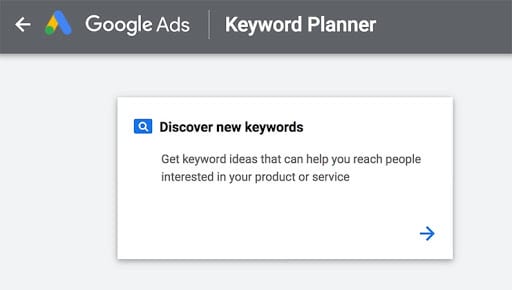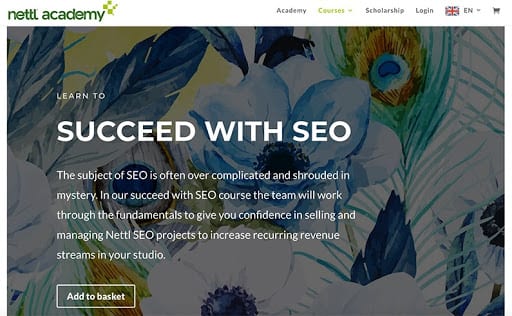How can Creatives Sell SEO to Local Businesses?
approx 10 minute read
Today, internet usage “is the highest it’s ever been and has surged by between 50% and 70%.” As a result of nationwide lockdown restrictions, people are using search engines in different ways. “People who used to listen to the radio on their commute are now checking Google for updates. Older generation consumers who used to rely on their caretakers are now using voice assistants to get answers”. There has never been a higher number of people using the internet.
This has had an impact on how businesses present themselves to clients online. With restaurants shut and hairdressers on pause, every sector has had to re-think their online presence and pivot their offering. Click and collect, delivery options and gift vouchers have helped businesses, big and small, to thrive during the pandemic.

But it’s how these businesses are found online that is key. And they are turning to their local creative source for help and guidance. Nettl, the world’s largest network of print, web, design and sign agencies, recorded a total of £1m of sales in SEO packages in August. 61% of marketers say improving SEO and growing their organic presence is their top inbound marketing priority. Clients of all sizes are clearly attaching a greater value to their online presence than ever before.
What is SEO and why is it important?
“The primary goal of SEO is to get your website in front of those who are searching for information, products or services that are relevant to what you do. Business owners invest in SEO because they want more people who are searching for relevant terms to find their website. Without having to pay every time someone clicks on the search result. At the heart of SEO is a collection of best practices that aim to improve the way search engines rank your website in organic search results”.
These best practices are what every creative or owner of a graphics-art business needs to know in order to appear relevant and credible.
Handling Objections when selling SEO
SEO comes with a reputation that is not always positive. In the past, some so-called SEO teams have undertaken practices on behalf of clients, with intentions of improving a ranking, that have been seen to be unethical and deceptive. According to a survey created by Wallaroo, 18% of participants thought SEO companies are a scam with 25% believing that SEO businesses can be effective, but success is mainly based on luck.
Some of the most unpopular practices stem from businesses trying to ‘buy’ their way to a higher ranking and deceive Google’s algorithm. Or to spend spammy emails that have no relevance to the client’s end-goal. At the heart of this deception lay an awareness, from the end client, that they were being taken advantage of. That their spend attributed to these practices had no real benefit and consequently, they felt cheated. So it is likely that, when SEO is mentioned, not every response will be positive.

Agencies and creatives must sell SEO responsibly and manage client expectations realistically. Build trust and loyalty between you and your clients. This will lead to more opportunities to bring in recurring revenue from SEO.
SEO is an ever-changing, ever evolving product. Google changes its algorithms all the time and it can be hard to keep up with new trends and best practices. This makes managing SEO projects time-consuming.
In this article, we’ll focus on four ways that small creative businesses out there can sell SEO to local businesses and do it in a way which will build trust with clients.
Selling SEO Services – Know Your Stuff
Did you know that “Best” and “right now” mobile queries have grown by over 125% in the last two years? And that 50% of search queries consist of at least 4 words?At Google Marketing Live 2018 it was revealed the query “___ to avoid” has noted a major rise of 150% while the query “ is ___ worth it” has risen by 80%. These stats show that users tend to apply the process of elimination to determine which products should be avoided and then decide on the product or service worth purchasing.
In order to sell SEO with trust, small businesses have to be up to date on SEO practices that work. And that are relevant. They need to advise and guide clients, with up to date knowledge. This will help maximise the client’s budget and increase the likelihood of ranking more favourably in their target searches. We can break this down a little further. Small businesses need knowledge on up to date trends and information that will help them to better manage client expectations and thus maximise client retention and their businesses’ reputation.
Look out for resources to upskill your SEO knowledge like Nettl’s Academy which provides creative-led companies and their teams with centralised support and training in order to improve their understanding of SEO, how to sell it as a service and how to manage the client journey and experience.
Managing client expectations around SEO services and goals
Hearing “I want to be on the first page of Google for car insurance” often leads to an internal groan or eye roll from creative business owners. But it should not be something to fear. It just means you may need to handle the client’s expectations around SEO, and debunk any misconceptions they have. This is where small businesses must have a source of knowledge from which to pull a process that will align the client’s expectations with the budget at hand.
Share checklists, ground-rules and get the client to pinpoint exactly what their budget is. These are all valuable steps to know in making sure that customers are aware of the path ahead. And which roads need to be taken to ensure their goals are met. Proposals, for example, clearly define the project in question. They are handy at visibly laying out the tasks and possible outcomes. So for the client who wants to rank #1 for car insurance, which is, in theory, achievable, it would require extensive spend on their part. It would also require extensive time, money and effort on the studio’s part, because car insurance is such a competitive market. Managing expectations is about busting misconceptions. Understand the client’s wants and needs and clearly outline what can be done for their time, money and effort investments.
Project budget management
It is the job of the small business to educate and advise the client on what plausible outcomes exist for their SEO spend. Gauge this yourself by looking at a keyword planner in a Google Adwords account as it can indicate the search volume and competition around a keyword. Understanding how many monthly average searches there are for a term, and how competitive the term is, makes it easier to talk to the customer.
Think about how much more time and resource would be required of an SEO team to increase the chance of ranking favourably for a term that has very few searches, very big competitors and is in a much more competitive market than another term that may also be very relevant, that has high search volume, low competition and fewer big competitors ranking for it.
Focus on realistic, more affordable keywords that are still entirely relevant to their business. By outlining achievable goals at the start, the risk of clients having false expectations is greatly reduced and small businesses will build loyalty and trust. Talking about budget at the beginning of the sales process is therefore vital and, with a couple of easily constructed documents, perhaps something reusable to also save time, like an online form, all cards are on the table.

Recent trends – Selling Online & Selling Local
Stay on top of new customer trends and understand how users are searching online as it has an effect on the practices you need to undertake in order to maximise traffic to a website. For example, with lockdown restrictions, more customers are buying online and buying local. 97% of consumers search online for local businesses. 12% of consumers do so on a daily basis.
Due to the immense levels of choice based on a high increase of online search, 49% of consumers need at least a four-star rating before they choose to use a business. Clients, when comparing businesses online, want reassurance that other customers have had a positive experience. How can you improve the ratings, online presence and the credibility of your client’s business? Put effort into designing beautiful websites with seamless UX, drive their online PR through Google my Business Pages and encourage online reviews. Facebook business pages are also beneficial.
Join forces to make yourself bigger
Because SEO has a, sometimes, volatile reputation, it can be difficult for smaller, creative businesses to appear trustworthy because of their size. Especially new, small businesses. As Google’s algorithms are constantly changing, some customers value the experience and number of years that an agency has been in the business as factors in determining how effective an agency’s strategies are. If a creative agency is mirco in-size, will the client have preconceived perceptions as to how ‘good’ that agency could be in producing effective SEO strategies?

There are solutions to these problems. Many small businesses outsource SEO work to third party organisations. Caution is needed here, however, as partnering with an independent business can lead to weak links in the chain if not managed effectively. But if done well, a small business is able to appear larger without having to compromise by hiring new staff or spending 12 hours a day on SEO associated work. Creative partnerships like Nettl can supply the resource and expertise to enable you to sell and scale your SEO offering, with the infrastructure of a global network and proven partner portfolio.
Benefits of Partnerships
Small businesses can also benefit from partnering with organisations that give them the status of being a ‘recommended supplier’. One of the most popular ways to do this is to partner with Google and become a Google Partner. The addition of this ‘scout badge’ on a website, proposal or tender document, can increase the credibility of your creative business. Organisations like Google can also help to expose business owners to a wealth of digital knowledge and resources.
However, accreditations from the likes of Google can be expensive and time consuming. Small businesses should consider partnering with an organisation that can provide easy entry into these types of programmes. Networks such as Nettl, cover the cost of Google Partnership as part of their offering.
SEO Courses For Beginners
For many creatives, SEO may be a completely new subject. There are many online SEO courses for beginners and some small businesses choose to partner with larger organisations who offer training courses. Learn the fundamentals of SEO, project management and reporting in an SEO training course. Become a Nettl, for example, and gain access to SEO courses for beginners. Your team will be guided through SEO fundamentals, the sale and management of SEO projects for your local clients. These courses are held online, in the Nettl Academy, which allows businesses to work through a variety of modules at their own pace as well as taking part in and contributing to live group sessions.
Use and Promote Effective Marketing Processes
According to 99 Firms, 38% of marketers are publishing content at least once a week. Small creative businesses should follow this example, if not only to market themselves to local businesses as a form of lead generation, but also to ‘practice what they preach’ when promoting effective SEO strategies with clients. In a similar vein, small businesses must create engaging and relevant content for their own site. “High-quality content (is one of) the most important signals used by Google to rank your website for search”. By using their own website to market themselves effectively, small businesses will appear trustworthy and their work will act as a successful case-study of best practice SEO. Case-studies and various social media platforms also act as top tactics to drive traffic and help to build brand identity and should be utilised by every small business who wishes to build credibility when selling SEO.
Be As Transparent As Possible
A lot of mistrust placed within SEO as a product offering lies in a lack of visibility of results. The reality is that there is no magic formula to increase page ranking and traffic volume overnight. SEO is a long game and it can take time before there are “significant” results. But a creative agency who cannot offer transparency of reporting, i.e. what work has been done and strategies implemented, as well as results that have been achieved as a direct output of SEO practices, will lose client trust, quickly.
It is essential that creative agencies supply a steady flow of clear and concise information to customers with regards to SEO activity. From adding and removing backlinks to creating a new blog post, clients must understand what has been done, when and why. This provides peace of mind that their attributed SEO spend is being wisely looked after. Small businesses must look to implement processes whereby reporting is easily shared, and even better, accessible to the end client. Nettl partners, for example, get access to monthly and quarterly reporting, which is generated for them. This allows the studios to present a clear and accurate analysis of monthly activity, without the process impacting their workflow.
In conclusion;
SEO is a service that creative businesses, big and small, must offer in order to stay relevant. Small businesses are able to increase their credibility and trust if they follow a few simple steps;
- Remain as updated as possible on best practices and recent trends
- Manage client expectations through effective communication
- Be clear about budget vs. reality
- Market well and use accreditations wisely to add credibility
- Provide transparent, accessible results
For small businesses who want to sell SEO services, Nettl offers a partnership of training, marketing, support and systems which helps creatives to sell SEO effectively, responsibly and profitably. This month, Nettl partners can sell SEO packages to their clients with up to a 50% discount, ensuring that customers take advantage of one of the busiest times of the year, online.


